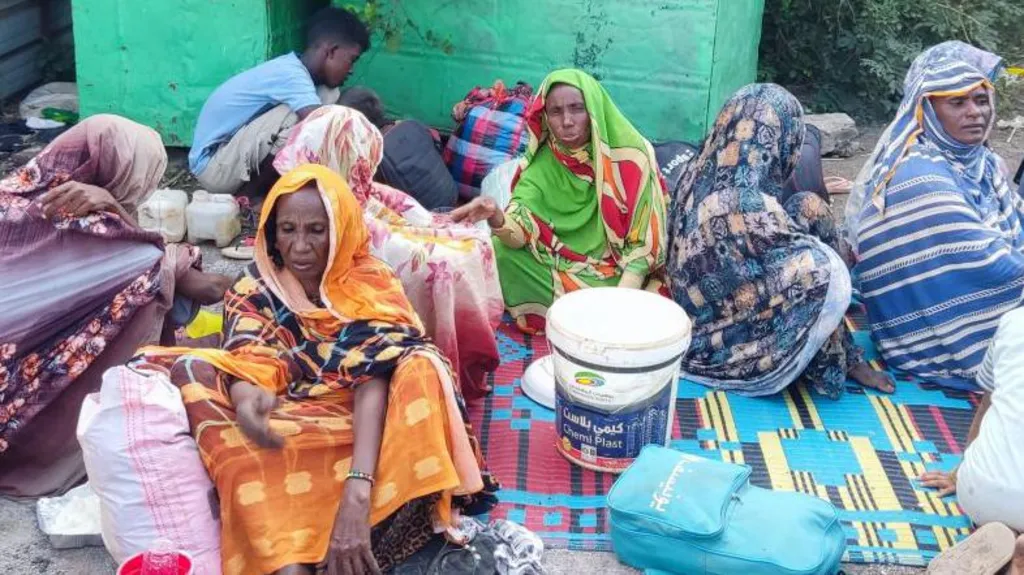Alarming Surge in Mass Killings in Sudan Sparks UN Concerns
3 min read
Escalating conflict in Sudan's Gezira state has forced civilians to flee

Escalating conflict in Sudan's Gezira state has forced civilians to flee
A senior UN official has expressed grave concern over reports of “atrocious crimes” occurring in Sudan’s central Gezira state, where the paramilitary Rapid Support Forces (RSF) are alleged to have carried out mass killings of civilians. Clementine Nkweta-Salami, the UN Resident and Humanitarian Coordinator in Sudan, highlighted the seriousness of the situation after an activist group reported that at least 124 individuals were killed in RSF attacks on various villages over the past week.
The RSF has denied targeting civilians, asserting that their fighters are engaged in clashes with militias supported by the military. However, the 18-month conflict in Sudan has already claimed tens of thousands of lives and displaced over 11 million people, leaving a devastating humanitarian crisis in its wake.
Recent events have escalated tensions in Gezira state, which has emerged as a key battleground following a significant defection within the RSF. One of its commanders, Abu Aqla Kayka, switched allegiance to the military, taking a considerable number of forces with him. This defection marked a high-profile shift and added fuel to the ongoing conflict.
In retaliation, the RSF declared that its fighters would protect themselves and take decisive action against anyone wielding weapons. Nkweta-Salami indicated that preliminary reports suggested a major offensive by the RSF occurred between October 20 and 25, resulting in widespread violence, including mass killings, sexual violence against women and girls, looting of markets and homes, and the destruction of farmland.
She noted that these “atrocious crimes” mirrored the scale of violence witnessed in Sudan’s Darfur region last year, where the RSF faced accusations of ethnic cleansing against communities perceived to oppose their agenda. The exact death toll remains uncertain, but initial reports indicate that many lives were lost during the recent violence in Gezira state.
In a statement issued on Saturday, the Wad Madani Resistance Committee, a group advocating for an end to the conflict and a return to democratic governance, condemned the RSF for committing “extensive massacres” in various villages. They have called on the international community for intervention and support.
Additionally, the Sudanese doctors’ union urged the UN to pressure both warring factions to establish safe humanitarian corridors, allowing aid to reach villages reportedly facing “genocide” at the hands of the RSF. They emphasized that rescue operations have become nearly impossible and criticized the army for being “incapable” of ensuring civilian protection.
The conflict in Sudan erupted in April 2023 following a power struggle between RSF commander Gen. Mohamed Hamdan Dagalo and military leader Gen. Abdel Fattah al-Burhan. The two previously collaborated in a coup in 2021 that halted Sudan’s democratic transition, but their alliance has since deteriorated into a brutal contest for power.
Despite ongoing diplomatic efforts by the US and Saudi Arabia to mediate peace, both leaders have remained unwilling to sign a peace agreement, prolonging the suffering of the Sudanese people.
The international community continues to monitor the situation closely, with fears growing that the violence will escalate further. The UN and humanitarian organizations are calling for urgent action to protect civilians and restore stability in the region.
As the humanitarian crisis deepens, with millions in need of assistance, the need for a resolution to the conflict has never been more pressing. The UN’s call for accountability regarding the reported atrocities aims to ensure that those responsible for these crimes are held to account, while also stressing the importance of facilitating humanitarian aid to those affected by the violence.
In summary, the current situation in Sudan reflects a dire need for both immediate humanitarian intervention and long-term political solutions. The ongoing violence threatens to deepen an already catastrophic crisis, emphasizing the urgency for collaborative international efforts to address the turmoil in Sudan and provide support to its beleaguered population.